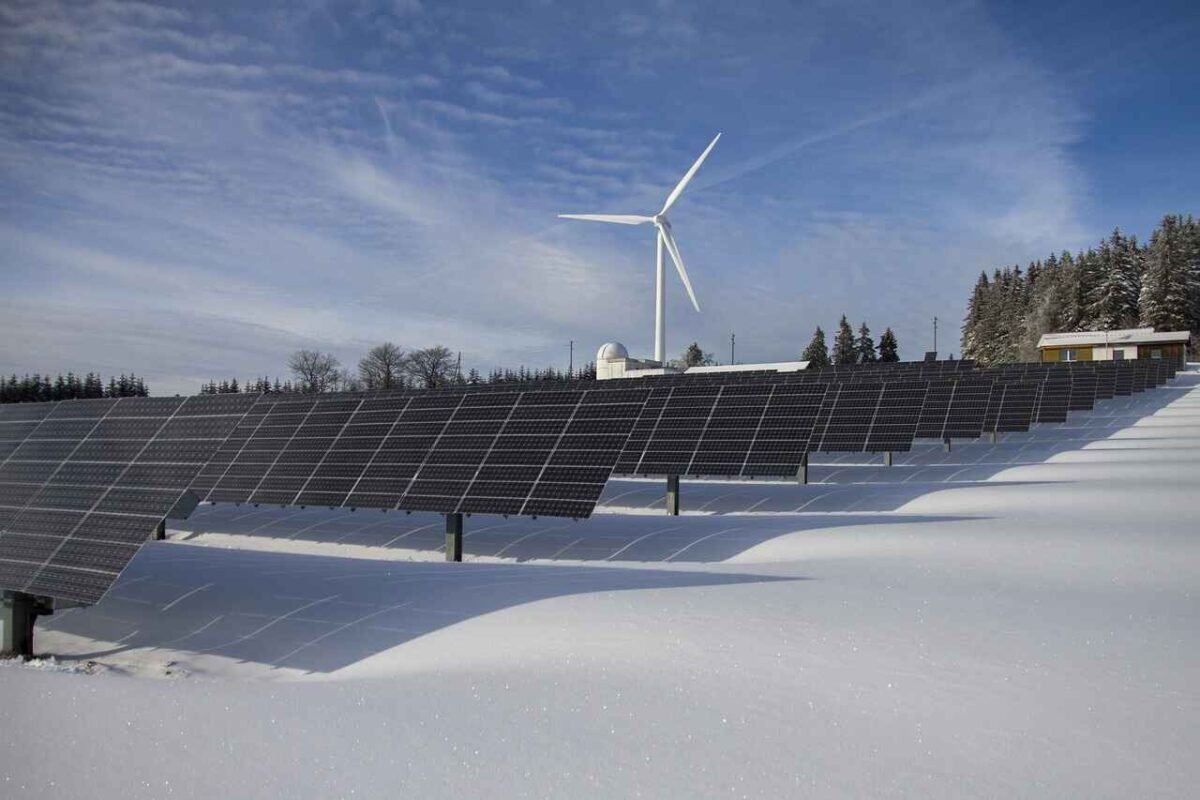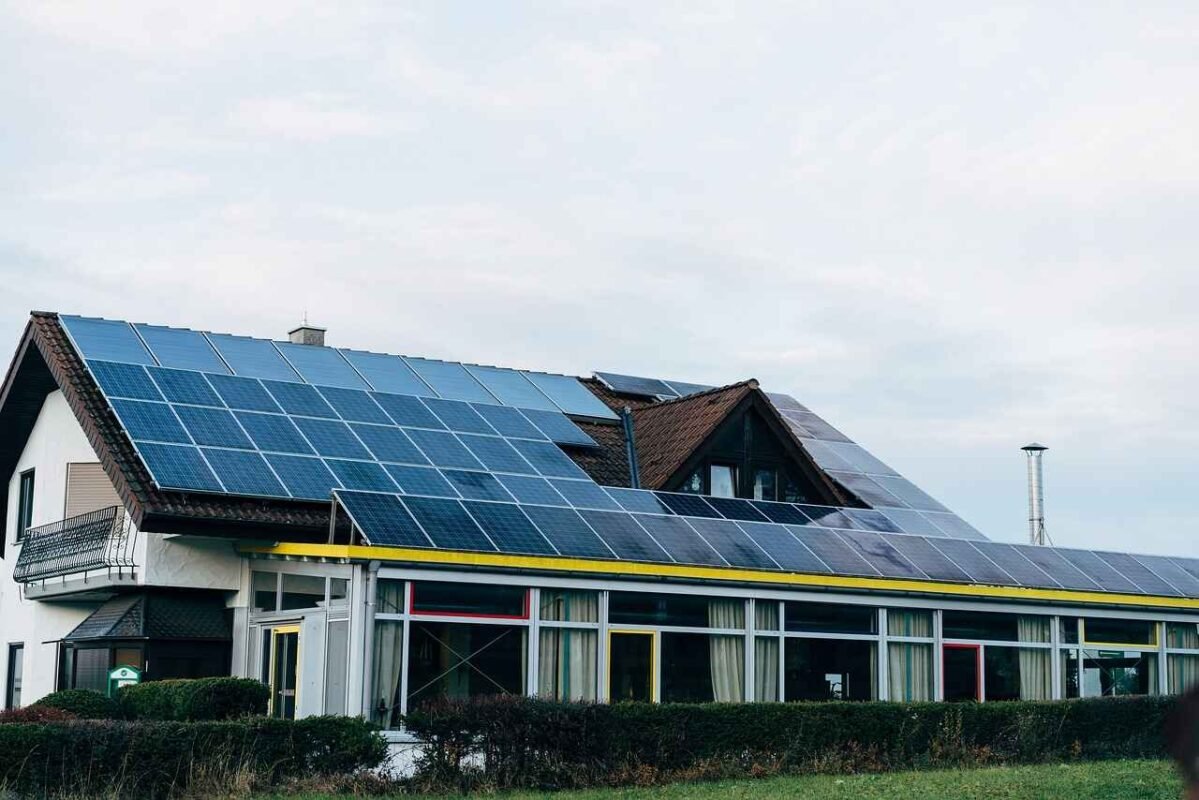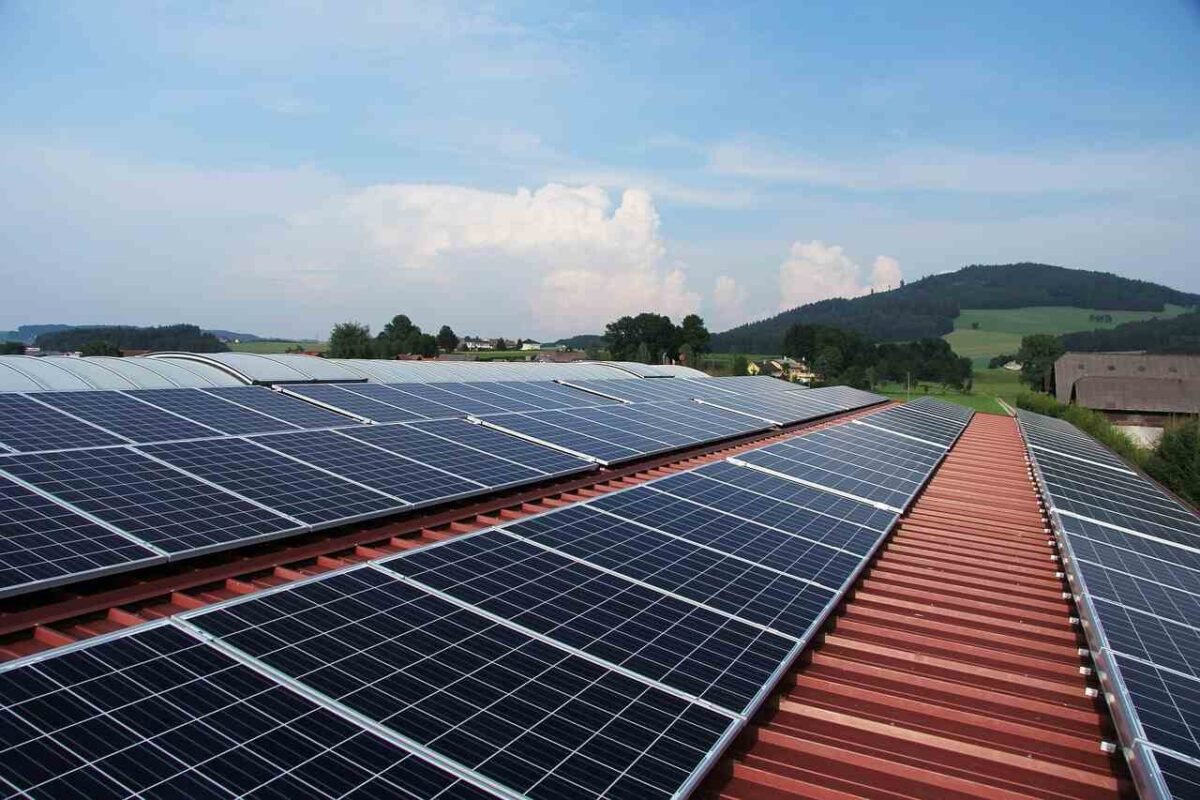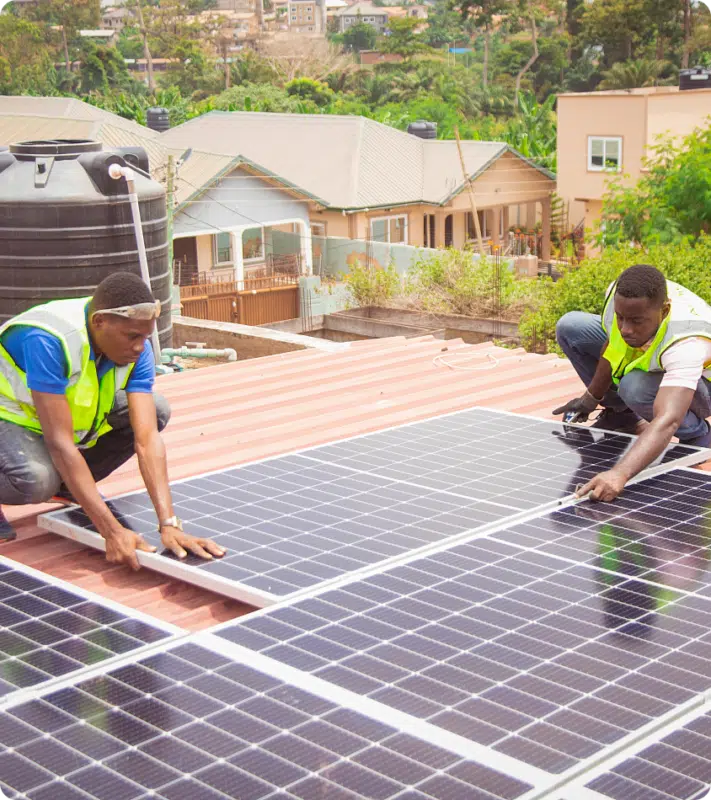Blogs
Role of Solar Energy in Achieving Global Sustainability Goals: A Green Revolution

Discover how solar energy plays a crucial role in achieving global sustainability goals, driving the green revolution, and promoting a cleaner, more sustainable future. Learn about its environmental and economic benefits.
Solar energy plays a crucial role in achieving global sustainability goals. It is a clean and renewable energy source that can help reduce carbon emissions. As the world seeks to combat climate change, solar energy stands out as a key solution. Harnessing the power of the sun can significantly cut down on the reliance on fossil fuels. This shift is vital for a greener future.
Solar energy not only helps in reducing greenhouse gases but also promotes energy independence. It is accessible and can be deployed in various regions, including remote areas. The adoption of solar energy technologies can drive economic growth, create jobs, and improve public health. By investing in solar energy, we can move closer to a sustainable and resilient world.
Introduction To Solar Energy
Solar energy has become a key player in the global push for sustainability. It offers a renewable and clean source of power. This makes it ideal for reducing our carbon footprint. Understanding solar energy can help us appreciate its role in achieving global sustainability goals.
What Is Solar Energy?
Solar energy is power harnessed from the sun. It is captured using solar panels and other technologies. These devices convert sunlight into electricity. Solar energy is abundant and widely available. It does not produce harmful emissions, making it environmentally friendly.
Brief History
The use of solar energy dates back to ancient times. Early civilizations used sunlight to heat their homes. In the 19th century, scientists began exploring ways to convert sunlight into electricity. The first solar cell was created in 1954 by Bell Labs.
Since then, solar technology has advanced greatly. The efficiency of solar panels has improved. Costs have also decreased, making solar energy more accessible. Today, it is a key component in the fight against climate change.
Global Sustainability Goals
Global Sustainability Goals, also known as the Sustainable Development Goals (SDGs), are a set of 17 interconnected objectives established by the United Nations. These goals aim to create a better and more sustainable future for all. They cover a wide array of areas including poverty, inequality, climate change, environmental degradation, peace, and justice. Solar energy plays a crucial role in achieving these goals, particularly by providing clean and renewable energy that can power progress in various sectors.
Overview Of Goals
The SDGs are designed to address global challenges and ensure that no one is left behind. Here’s a brief look at some of the goals:
- Goal 1: No Poverty
- Goal 2: Zero Hunger
- Goal 3: Good Health and Well-being
- Goal 7: Affordable and Clean Energy
- Goal 13: Climate Action
Each goal is interconnected, meaning progress in one area can accelerate progress in others. Solar energy is particularly relevant to Goal 7, which seeks to ensure access to affordable, reliable, sustainable, and modern energy for all.
Importance Of Renewable Energy
Renewable energy, including solar power, is essential in achieving global sustainability goals. Here’s why:
- Reduces Carbon Footprint: Solar energy reduces the reliance on fossil fuels, which are major contributors to greenhouse gas emissions.
- Economic Benefits: Investing in solar energy can create jobs and stimulate economic growth. You might know someone who found a new career in the solar industry, highlighting its potential for job creation.
- Energy Access: Solar energy can provide electricity to remote and underserved communities, improving their quality of life and enabling further development.
Imagine living in a remote village with no electricity. Suddenly, solar panels are installed, providing power for schools, hospitals, and homes. This change not only improves daily life but also supports broader development goals.
Have you considered how your energy choices impact global sustainability? Transitioning to solar energy is a practical step you can take to support these goals. By doing so, you contribute to reducing environmental impact, promoting economic growth, and enhancing energy access for all.
Let’s reflect: How can each of us make a difference in achieving these goals? Are our current energy choices aligned with the vision of a sustainable future? It’s time to think about the role of renewable energy, particularly solar power, in shaping a better world.
Environmental Impact
The role of solar energy in achieving global sustainability goals cannot be overstated. Its environmental impact is significant and far-reaching. By harnessing the power of the sun, we can make substantial strides in preserving our planet. Let’s explore two key areas where solar energy makes a difference.
Reducing Carbon Footprint
Solar energy is a clean, renewable source of power. It produces no greenhouse gases during operation. This helps reduce the carbon footprint significantly. Lower carbon emissions mean fewer pollutants in the air. Cleaner air leads to better health and a safer environment. By using solar energy, we can slow down climate change. This is crucial for achieving global sustainability goals.
Preserving Natural Resources

Solar energy reduces the demand for finite resources. Traditional energy sources, like coal and oil, are limited. They also cause environmental damage when extracted. Solar power relies on sunlight, which is abundant and free. Using solar energy helps preserve these natural resources. It also reduces the need for mining and drilling. This leads to less habitat destruction and pollution. By shifting to solar power, we can protect our planet for future generations.
Economic Benefits
Solar energy plays a significant role in achieving global sustainability goals, especially from an economic standpoint. Let’s explore the economic benefits of solar energy through the lenses of job creation and cost savings.
Job Creation
One of the most compelling economic benefits of solar energy is the creation of jobs. The solar industry is booming, and with it comes a plethora of employment opportunities. From manufacturing solar panels to installing them on rooftops, the demand for skilled labor is high.
Take, for example, a small town where a new solar farm is being constructed. This project not only requires engineers and technicians but also brings in jobs for local electricians, construction workers, and even administrative staff. By investing in solar energy, communities can significantly boost their local economies.
Moreover, these jobs are not just temporary. As the world shifts towards renewable energy, the need for maintenance and upgrades ensures long-term employment. This stability can be a game-changer for many families.
Cost Savings
Switching to solar energy can lead to substantial cost savings, both for individuals and businesses. Have you ever considered how much you spend on electricity each month? With solar panels, you can drastically reduce or even eliminate your electricity bills.
For homeowners, installing solar panels might seem like a big investment initially. However, the long-term savings are significant. Imagine redirecting those savings towards other essential expenses or investments.
Businesses, too, can benefit. Lower operational costs mean higher profit margins. Some companies have even seen their energy costs drop by as much as 70% after switching to solar. These savings can then be reinvested into the business, fostering growth and innovation.
Have you thought about how much your business could save with solar energy? It’s a question worth pondering as more and more companies make the switch.
In conclusion, the economic benefits of solar energy are clear. By creating jobs and offering substantial cost savings, solar energy not only supports global sustainability goals but also bolsters the economy. Are you ready to explore the potential of solar energy for your home or business?
Technological Advancements
Solar energy plays a crucial role in achieving global sustainability goals. It provides a clean and renewable source of power, reducing reliance on fossil fuels. This helps lower carbon emissions and combat climate change.
Technological advancements play a crucial role in the growth of solar energy. These innovations help make solar energy more efficient and accessible. They also support global sustainability goals.
Innovative Solutions
New solutions are changing how we use solar energy. Solar panels can now be placed on rooftops, windows, and even roads. This makes it easier to capture sunlight in different places. Solar batteries store energy for use at night or on cloudy days. Smart grids help distribute solar energy better. These grids make sure energy reaches where it’s needed most.
Efficiency Improvements
Efficiency improvements make solar panels work better. Modern panels can convert more sunlight into energy. This means they produce more power with less space. Advances in materials like perovskite enhance panel performance. Better designs also help reduce energy loss. Efficient panels lower costs and increase solar energy use.
Challenges And Barriers
The role of solar energy in global sustainability is crucial. Yet, several challenges and barriers hinder its full potential. These obstacles must be understood and addressed. Let’s explore some key issues.
Technological Hurdles
Solar energy technology continues to evolve. But it faces significant challenges. One major issue is energy storage. Solar power generation is intermittent. Energy storage solutions are not yet efficient enough. This makes solar power less reliable compared to traditional sources.
Another technological hurdle is the efficiency of solar panels. Current panels convert only a fraction of sunlight into electricity. Advances are needed to make solar panels more efficient. This requires continuous research and development.
Economic Constraints
The initial cost of solar energy systems is high. Installation and equipment expenses deter many potential users. But they are not always sufficient. This economic barrier slows down the adoption of solar power.
Maintenance and operational costs also pose challenges. Solar panels need regular cleaning and upkeep. This adds to the overall cost. Developing countries face additional financial constraints. These countries may lack the resources to invest in solar energy infrastructure.
Financing options for solar projects are limited. Banks and investors are often hesitant. They perceive renewable energy projects as risky. This limits the funding available for solar energy initiatives.
Case Studies
The role of solar energy in achieving global sustainability goals is crucial. This section delves into real-world case studies. They showcase the effectiveness of solar energy projects. These examples highlight both successes and challenges. By examining them, we can learn valuable lessons for future implementations.
Successful Implementations
One noteworthy example is the solar power initiative in Germany. The country has invested heavily in solar energy. As a result, they have reduced their carbon emissions significantly. Another example is India’s solar park in Gujarat. This project has transformed the region’s energy landscape. It has provided clean energy to thousands of households.

In California, the Ivanpah Solar Electric Generating System stands out. It is one of the largest solar thermal projects in the world. It generates enough electricity to power 140,000 homes. These successful implementations demonstrate the potential of solar energy.
Lessons Learned
From these case studies, several lessons emerge. First, public awareness plays a key role. Educating communities about the benefits of solar energy can lead to higher acceptance.
Second, the initial investment can be high. However, the long-term savings and environmental benefits outweigh the costs. Finally, ongoing maintenance is crucial. Regular checks ensure the efficiency and longevity of solar installations.
These lessons help shape future solar energy projects. They highlight the importance of planning and community involvement. By learning from these examples, we can move closer to global sustainability goals.
Future Prospects
Solar energy has emerged as a vital player in achieving global sustainability goals. Its future prospects hold promise for a greener planet. Understanding these prospects helps us see the role of solar energy in a sustainable future.
Growth Opportunities
Solar energy offers vast growth opportunities. The technology keeps improving, making solar panels more efficient. This means more energy with less space. Costs are also falling. Solar power becomes more affordable for everyone.
Many countries invest in solar energy. These efforts increase solar energy adoption. This creates jobs and boosts economies. Solar energy can power remote areas. This reduces reliance on traditional fuels.
Long-term Vision
The long-term vision for solar energy is bright. Solar power can meet a large part of global energy needs. As technology advances, solar energy becomes more reliable. Energy storage solutions improve. This makes solar power available anytime.
Solar energy can help combat climate change. Reducing carbon emissions is key. Solar power produces clean energy. This helps protect the environment. Future prospects of solar energy are promising. They offer hope for a sustainable world.
Frequently Asked Questions
What Is The Role Of Solar Energy In Achieving Sustainable Development Goals?
Solar energy plays a critical role in achieving sustainable development goals by reducing greenhouse gas emissions, promoting clean energy, and enhancing energy security. It supports economic growth and job creation while ensuring environmental protection and social well-being. Solar energy is key to a sustainable future.
How Does Solar Energy Contribute To Sustainability?
Solar energy reduces reliance on fossil fuels. It lowers greenhouse gas emissions and pollution. Renewable, abundant, and sustainable, solar power supports environmental conservation.
What Is The Role Of Renewable Energy In Achieving Sustainable Development Goals Sdgs?
Renewable energy plays a crucial role in achieving sustainable development goals by reducing carbon emissions, promoting energy security, and creating green jobs. It supports clean energy access for all and fosters economic growth while protecting the environment.
How Does Solar Energy Impact Earth’s Global Climate System?
Solar energy reduces reliance on fossil fuels, lowering greenhouse gas emissions. This helps mitigate climate change impacts and promotes environmental sustainability.
Conclusion
Solar energy offers a sustainable path for our planet. It reduces reliance on fossil fuels. Clean energy supports global sustainability goals. Harnessing solar power protects our environment. Future generations will benefit from our choices today. Solar energy is accessible and practical. Embracing it helps combat climate change. Let’s invest in a brighter, greener future.






























